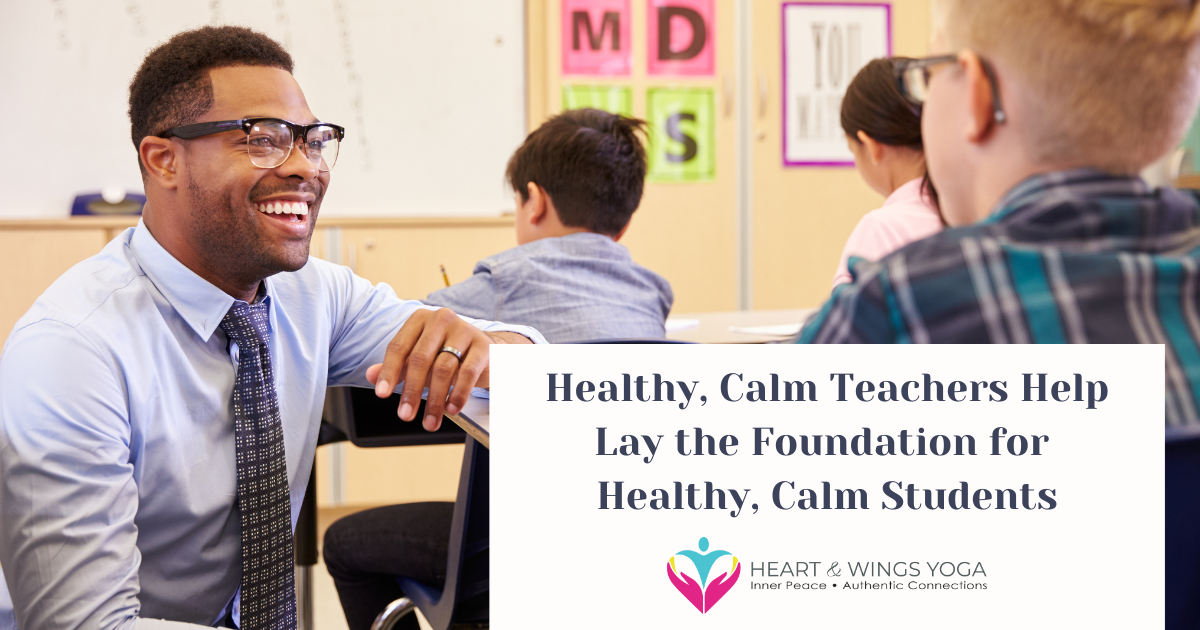May 31, 2023
The number of students struggling with stress, anxiety, and depression has risen in recent years and peaked to new highs with the pandemic. Mental health concerns are impacting students at all levels of learning including children in elementary school, youth in middle and high school, and young adults in college.

Schools are responding to the increasing needs by providing additional mental health services, as well as teaching students mindfulness practices, ways to regulate their emotions, and tools to manage stress. This is important for children while they are in school, but also as they graduate and prepare for advanced studies or enter the workforce.
The increasing needs of students has placed additional stress on teachers and school staff. Not only are staff and faculty trying to balance their increasing work demands, but they are also supporting their students with the heavy loads they are carrying, much of which is trauma and grief they feel unequipped to handle.1 With the compounding stress and demands on educators, it’s essential that schools also prioritize their health and wellbeing. This helps to reduce stress, burnout, compassion fatigue, and physical health problems, all factors that contribute to teacher absenteeism or turnover.
In 2017, the Yale Center for Emotional Intelligence and New Teacher Center surveyed over 5,000 educators who reported that they spend nearly 70% of their workday feeling “frustrated,” “overwhelmed,” and “stressed.”2 And this was before Covid!
When educators are feeling just as frustrated, overwhelmed, and stressed as students, it takes a toll not just on their health and well-being, but also on their relationship with students, families, and colleagues. It impacts their classroom environment, job satisfaction, and the energy that they are able to put into their lessons.
However, when school employees are at their best physically, emotionally, and mentally, they are then able to show up each day with more passion, focus, creativity, patience, and enthusiasm. This helps them to create an optimal learning environment where they can hold space for the students in their care, model healthy learning habits, and students feel encouraged to ask questions, learn, and grow. Healthy, calm teachers help lay the foundation for healthy, calm students. It’s a win-win for all educational stakeholders!
Modeling healthy emotional habits begins with leadership and intentionally becomes embedded into a school’s culture - resulting in a healthier staff and student body.
Teaching leadership staff, administrators, and educators how to down- or up-regulate their emotions helps them to achieve greater well-being, maintain stronger, healthier relationships, make more informed decisions, and leads to a more engaging, welcoming environment. It’s important to weave lessons and opportunities to develop these skills, such as yoga and mindfulness, into the school day.
Regular practice creates positive outcomes that impact not only the participant, but also others in and beyond the school walls. For example, conscious breathing:
- Teaches people to respond, not react, to others and situations
- Encourages mindful action
- Eases tensions and improves the learning environment
- Improves one’s posture, attention, and focus
- Helps students to build a skill they can use with time
- Strengthens one’s mindset and ability for creative problem solving
- Helps transition from home to work and work to home
When conflict arises, participants can practice conscious breathing to make resolutions more productive. It’s important to provide mental health services to students to help them thrive at school, home, and life, but it’s just as important to the academic, social, and emotional health of the student to provide support to their teachers and staff.
If you’re interested in learning more about how conscious breathing, mindfulness, coaching, and yoga practices can make a positive and lasting impact on school leadership, teachers, and students alike, contact us today. Heart and Wings Yoga offers customizable classes, both in-person and online, and is dedicated to supporting those in Rochester, NY and surrounding areas. To take the next step, send an email using our secure contact form.
1 Children's Mental Health in Crisis
2 Permission to Feel by Marc Brackett, PhD

.png)



